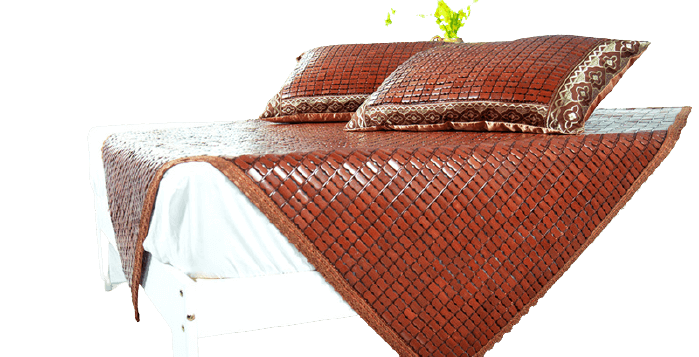Key Takeaways on Carbonized Bamboo vs. Activated Charcoal
| Aspect | Details |
|---|---|
| What is Carbonized Bamboo? | Produced by heating bamboo at high temperatures. Used in eco-friendly products. |
| What is Activated Charcoal? | Made from carbon-rich materials exposed to high temperatures and a gasifying agent. |
| Environmental Impact | Bamboo is sustainable and less resource-intensive compared to other sources for charcoal. |
| Health Benefits | Both materials are used in various health and beauty products for their absorptive properties. |
| Uses in Daily Life | Extensively used in home products, gardening, and design for odor control and moisture regulation. |
| Cost and Accessibility | Carbonized bamboo is generally more affordable and widely available than activated charcoal. |
Introduction
Welcome to MesidaBamboo, where we champion the cause of sustainability and innovation with our bamboo-based products. Since our inception in 1999, our commitment has been towards not just delivering quality but also in educating our community about the benefits and uses of bamboo in everyday life. This guide dives deep into the fascinating world of carbonized bamboo and activated charcoal—two remarkable materials known for their versatility and environmental benefits.
Understanding Carbonized Bamboo and Activated Charcoal
What is Carbonized Bamboo?
Carbonized bamboo is created through the process of heating bamboo at high temperatures in an environment devoid of oxygen. This not only changes its color to a richer, darker tone but also enhances its durability and resistance to pests. The process does not involve any chemical additives, making it a purely natural transformation. Discover more about this process and the range of products we offer, such as bamboo sleeping mats and bamboo mahjong mats, on our product page.
What is Activated Charcoal?
Activated charcoal, on the other hand, is made from various carbon-rich materials such as wood, peat, or coconut shells, and even bamboo. The material is exposed to very high temperatures combined with a gasifying agent to 'activate' it. This process increases its surface area and porosity, making it highly effective at adsorbing impurities and toxins. It’s widely used in both health and environmental applications, ranging from toxin removal to air purification.
Environmental Impact and Sustainability
Eco-Friendly Attributes of Carbonized Bamboo
Carbonized bamboo offers a sustainable alternative in the production of various goods. The fast growth rate of bamboo makes it a renewable resource, and its carbonization process is relatively low in environmental impact compared to the production of other types of charcoal. By opting for products made from carbonized bamboo, consumers are making an environmentally responsible choice. Learn more about how we ensure sustainability in all our processes at MesidaBamboo.
Analyzing the Environmental Footprint of Activated Charcoal
While activated charcoal is beneficial for many purposes, its production can be resource-intensive, especially when derived from non-renewable materials. In contrast, bamboo-based activated charcoal uses a faster-growing, more sustainable source material, making it a preferable option in terms of environmental impact.
Health and Beauty Applications
Activated Charcoal in Health Products
Activated charcoal is renowned for its detoxifying properties. It is used in emergency rooms globally to treat certain types of poisoning and overdose by preventing toxins from being absorbed into the stomach. The absorptive properties also make it popular in skincare products, helping to pull impurities from the skin and reduce acne.
Beauty Benefits of Bamboo Charcoal
Similarly, bamboo charcoal offers benefits in beauty regimes. Its ability to draw out toxins and reduce odor makes it ideal for use in skin care products, purifying masks, and even toothpaste. Discover more about the health benefits of carbonized bamboo.
Practical Uses in Everyday Life
Home and Gardening Applications
Both carbonized bamboo and activated charcoal have unique properties that make them highly beneficial in home and garden settings. Carbonized bamboo, with its ability to regulate air moisture, is perfect for indoor environments, helping maintain humidity levels which is particularly beneficial during dry seasons. Its porous nature also makes it excellent for odor control, making it a popular choice for air purifiers and deodorizers. For more innovative applications of carbonized bamboo, visit our ingenious uses page.
Activated charcoal shines in its ability to purify and filter. It is widely used in water filtration systems to remove impurities and contaminants. Gardeners value activated charcoal for its properties to remove toxins from soil, which can greatly enhance plant health. It can also be mixed into compost piles to reduce odors and help absorb moisture, promoting a faster decomposition process.
Innovative Uses in Design and Craft
The aesthetic appeal of carbonized bamboo has made it a favorite in the design and craft industry. Its rich, dark tone and natural grain bring a touch of elegance and warmth to any space, making it ideal for flooring, furniture, and decorative items. Our exploring the rich world of carbonized bamboo flooring offers insights into its versatility in modern interior designs.
Activated charcoal, though less commonly used for its visual appeal, finds its niche in the production of minimalistic design elements. Its black, matte texture provides a unique visual contrast, popular in creating striking modern art pieces and decorative filters.
Cost, Accessibility, and Consumer Choices
Market Analysis of Carbonized Bamboo Products
Carbonized bamboo is not only sustainable but also cost-effective. It is widely available, especially in regions where bamboo is abundantly grown, making it an economical choice for a variety of applications. From building materials like carbonized bamboo flooring to everyday items like carbonized bamboo mahjong mats, the affordability, and durability of carbonized bamboo make it a favored option among consumers seeking both quality and sustainability.
Evaluating the Cost and Availability of Activated Charcoal
While activated charcoal is highly effective, its production cost can be higher, especially when sourced from non-renewable materials like hardwood or coconut shells. However, when produced from bamboo, it can be more cost-effective and environmentally sustainable. Consumers interested in purchasing activated charcoal should consider their specific needs—whether for health, beauty, or home use—to determine the best type of activated charcoal to buy, considering both cost and effectiveness.
Final Thoughts
Choosing between carbonized bamboo and activated charcoal largely depends on your specific needs and environmental preferences. Carbonized bamboo offers a sustainable and aesthetically pleasing solution for home and design needs, while activated charcoal provides unparalleled purification benefits. By considering the environmental impacts, health benefits, and practical applications, consumers can make informed decisions that align with their lifestyle and values.
Conclusion
Both carbonized bamboo and activated charcoal bring a wealth of benefits to a wide array of applications—from health and beauty products to eco-friendly home solutions. At MesidaBamboo, we encourage our community to explore the potential of these remarkable materials. Whether you are looking to enhance your living space, improve your health, or contribute to environmental sustainability, our range of products offers something for everyone. Explore our complete guide and find out which option is best for you at MesidaBamboo.




One Response
Ԛuality аrticles or reviews is the secret to interest the
viewers to go to see the site, that’s what this site is providing.